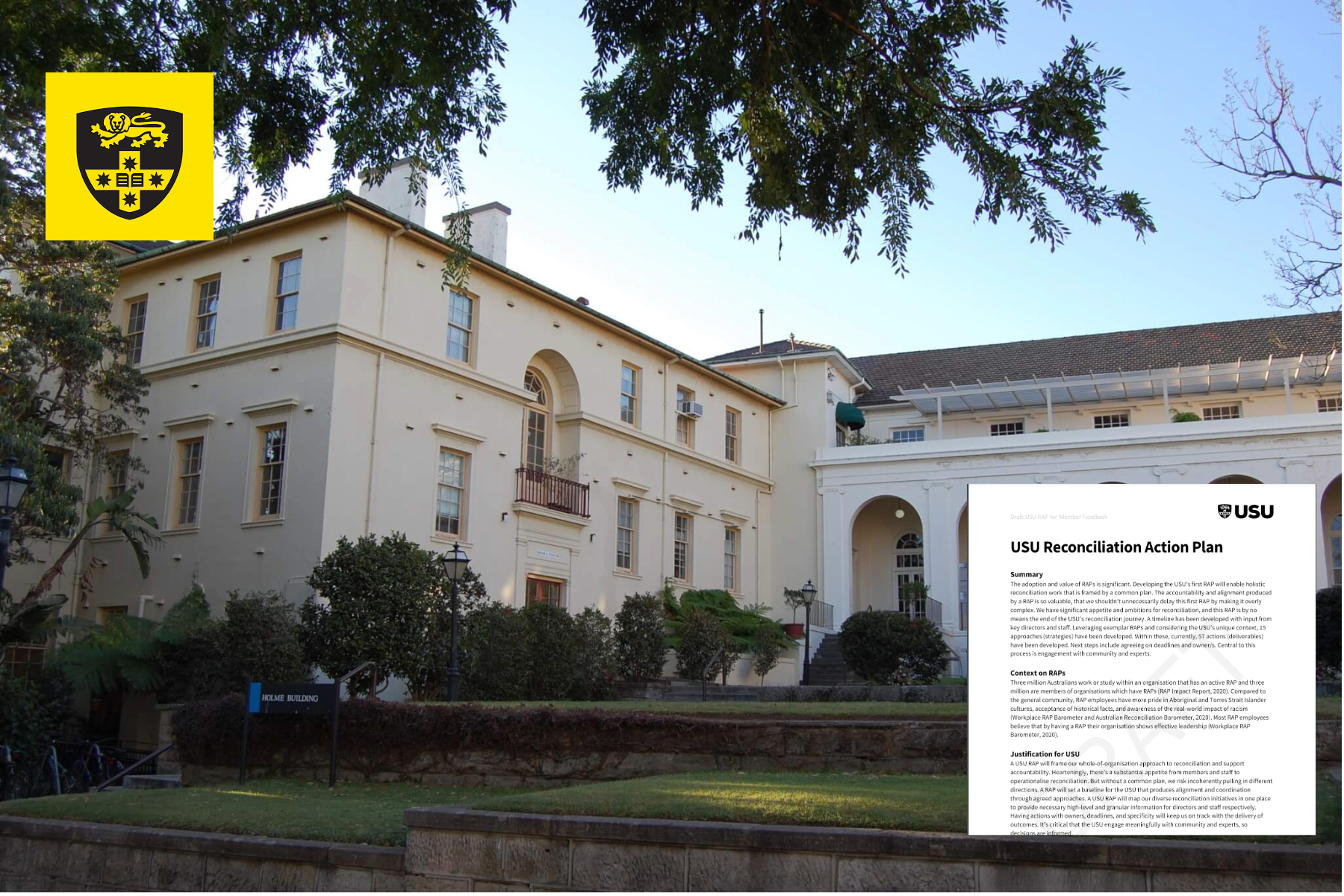On April 30, the University of Sydney Union (USU) held its first Reconciliation Action Plan (RAP) focus group session, aiming to consult with Indigenous and non-Indigenous students to develop its inaugural RAP. Callout for this forum took place over an email to all USU members, luring participants with a voucher reward.
The forum was led by Professor and Associate Dean (Indigenous Strategy and Services) Rick Macourt, who charismatically directed the discussion. Egregiously, there were no Indigenous students present at the forum, meaning that Macourt had to undertake significant labour in explaining Indigenous Australian issues, particularly to international students who did not grow up with basic education on these discourses. It also meant students felt slightly uncomfortable speaking ‘on behalf’ of Indigenous students; however, Macourt spoke with expertise and met us on our level of knowledge, not expecting us to provide solutions.
The focus group involved discussion in groups of four or more, responding to prompts such as, “What could the USU do to support Indigenous-owned businesses?” and “How
Ideas ranged from the implementation of USU staffing quotas to forging partnerships with Indigenous-owned businesses for contracting services such as baked goods at Courtyard. Macourt noted them down to “share with the USU”.
According to Macourt, the RAP will likely be finalised by the year’s end, but it requires significant consultation before its completion. The USU currently has a callout on the Jobs Board for a “Reconciliation Action Plan Lead”, which is an Indigenous and Torres Strait Islander-identified position — suggesting the initiative is yet to fully take off. Macourt explained that there are multiple tiers of RAPs in terms of intensity of commitment, and this is the lowest tier, meaning that there will be little detail and the commitments will not be binding.





